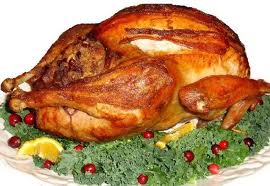Before going to the supermarket to buy the turkey, assorted vegetables, fruit and cheese for Thanksgiving, many people will have to clear out refrigerator space to hold everything. That means throwing away a lot of uneaten food such as moldy tomatoes, withered lettuce, expired yogurt containers, and bowls of now unrecognizable leftovers.
This once good, nourishing food cost money to buy. And, by throwing it in the trash, that food waste will be sent to a landfill where it will rapidly decompose and generate methane, a potent greenhouse gas that contributes to climate change.
Nationally, nearly 35 million tons of food waste was generated in 2012, according to EPA’s Municipal Characterization Report. And 96 percent of that food waste was thrown away into landfills or incinerators. Some estimates translate this into a loss of approximately $165 billion annually. These are disturbing numbers especially when you consider how many people in the U.S. go hungry every day.
But there is hope. Supermarkets, universities, businesses and other organizations are joining EPA’s Food Recovery Challenge in an effort to reduce food waste by donating unused food to food cupboards or turning it into compost. Families and individuals can also help to cut down on food waste, and save money in the process.
Here are four holiday tips anyone can use to reduce their impact on the environment this Thanksgiving:
- Plan your menu and make a list of everything you’ll need. Check your cupboards and cabinets to see what you already have on hand. Taking a detailed list to the grocery store will cut down on overbuying which, in turn, will reduce waste and save money.
- Use your leftovers. Make soup with leftover turkey and vegetables. Or, give them to your guests to take home.
- Donate usable food to a food bank, shelter, soup kitchen or other organization that feeds hungry people in your community.4. Compost your food waste. Composting reduces the amount of food waste that goes into the trash. And you’ll end up with free, nutritious fertilizer that will help next year’s garden grow. Uncooked vegetables and fruits, eggshells, and coffee grounds are just some of the items that can be composted.
For more information about food waste:
- EPA’s Food Recovery Challenge: www.epa.gov/smm/foodrecovery/index.htm
- Household Composting: http://www2.epa.gov/recycle/composting-home
If our reporting has informed or inspired you, please consider making a donation. Every contribution, no matter the size, empowers us to continue delivering accurate, engaging, and trustworthy science and medical news. Independent journalism requires time, effort, and resources—your support ensures we can keep uncovering the stories that matter most to you.
Join us in making knowledge accessible and impactful. Thank you for standing with us!

